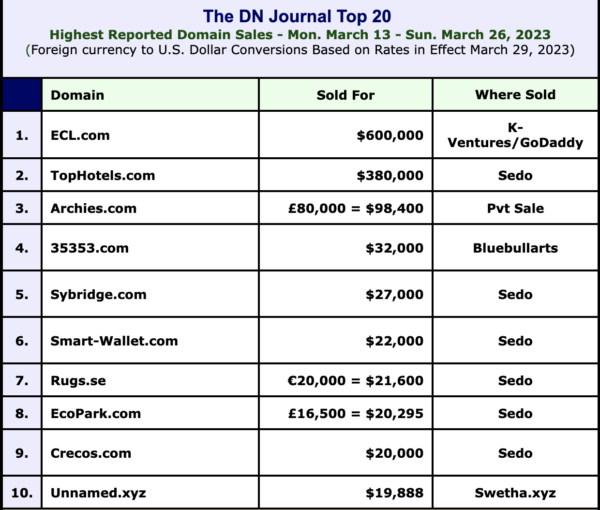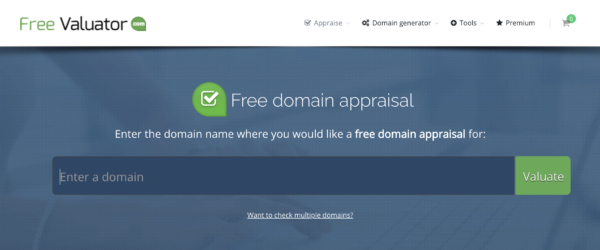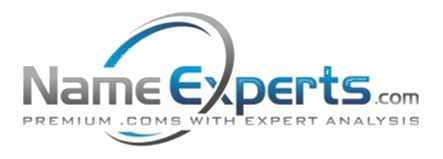Domain valuation can be confusing whether you are the buyer or seller. “What’s my domain worth?” is a question that many domain owners ask themselves. “Why are domains so expensive?”, an intending buyer may ask after seeing the price of the domain they want. We will dive deep into domain valuation and the factors that affect the value of a domain, but first it’s helpful to understand why they cost money in the first place.
Why Do Domain Names Cost Money?
A domain name is an online property and property costs money. They are scarce by design; once a person buys a domain, it belongs to them as long as they pay the renewal fees. Likewise, it costs money to maintain the vast computing infrastructure that powers the world wide web, and selling domain names is a way for registrars to recoup their costs.
Why Would You Need To Value A Domain?
It is important to have an estimate of what a domain name is worth whether you are the buyer or seller. This ensures that a buyer won’t overpay for a domain and a seller won’t sell their domain for a price far below what they could have gotten from another buyer.
Domain name valuation helps buyers or sellers assess the worth of a domain and pay or receive a fair market price.
What Makes A Domain Valuable?
The Top-Level Domain (TLD)
The TLD refers to the last segment of a domain name that comes after the “dot” symbol (.com, .ai, .co, .xyz, etc.). It plays a big role in the value of a domain due to supply and demand dynamics. For instance, .COM is the most popular option for domain buyers, so domains with this TLD tend to be more expensive than others with less demand. Some other TLDs also have a reputation for being expensive because of strong demand, like .ai and .io.
Domain Length
The number of characters of a domain also affects its value. The rule of thumb is that the lesser the number of characters, the more valuable the domain.
Number of Words
Similarly to length, the number of words in a domain name affects its valuation. The lesser the number of words, the more valuable a domain is. This happens because domains with one or two words are easier to remember and thus command more brand power.
Length of Domain History
How long a domain has been owned by someone else contributes to its value. The longer the period of ownership, the higher the chances of that domain being recognizable. So, domains owned for a long time tend to command higher prices than new or short-lived ones.
Domain Popularity
If a domain name is already in use, the volume of the traffic on the site using it contributes to its value. High-traffic domains are more expensive because the new buyer can leverage the existing traffic to drive demand for their own website. Likewise, if an existing domain has backlinks from other websites, it will command a higher price because backlinks improve search engine rankings and help generate organic traffic.
Availability of Alternative Domains
Can the buyer find a similar domain name elsewhere? (for instance Trucks.com > Trucks.co or Trucks.net). If the buyer can’t find a similar domain somewhere else, then they will be more willing to pay a high price for it.
How To Determine A Domain’s Value
There is no specific formula for this activity. However, there are some tools and services to help you estimate the value of a domain name.
1. Research Tools
The first step in figuring out how much a domain name can sell for is checking out the price of similar domain names. Thus, you can use a research tool to see what similar domain names are selling for and compare them to your own. This will help you select a fair market price.
DN Journal is a good example of a platform that collates domain name sales figures and displays them to readers.

Domain Name Wire is another example. You can find blog posts about notable domain sales to help you estimate what you can sell yours for. There are many others, but these two are a good place to start.
2. Use An Appraisal Service
There are various platforms and domain valuation calculators that specialize in estimating the market value of a domain name. They appraise a domain based on many factors including popularity, search engine ranking, social media shares, TLD, and by comparing it to similar domains. These domain appraisal platforms make it easy to get an educated answer on how much a domain is worth.
Free Valuator is a good example of a domain value and appraisal tool. Just open the website, type the domain in the search box, and hit the Valuate button, then you will see an informed estimate.

3. Find Out What Others Are Willing To Pay
A more direct way to answer the question of “what is a domain worth?” is to see what others are willing to pay for it. The easiest way to do this is to list your domain on a marketplace like Sedo and Afternic and see what offers you get. You can use the offers as the yardstick for valuing the domain. You may also approach intending buyers directly through domain name forums or your social circles and note what they are willing to pay.
How To Increase Your Domain’s Value
There are several ways to boost the value of a domain, including:
Search Engine Optimization (SEO)
This refers to optimizing a web page such that it ranks high on search engines. You can do this by including relevant keywords in your niche and getting backlinks from other websites. If people can find your website on search engines, they will click on it more often and give you higher traffic, which translates into a higher domain value.
Market Your Site
You can advertise your website on appropriate venues like social media, search engines, or even use word of mouth. This lets people know you exist and will likely drive higher traffic to your domain, giving it a greater value.
Availability of Other Domains
People are less willing to pay a high price for a domain if they can get something similar for cheaper elsewhere, e.g., Cars.com > Cars.co. One way to avert this is to buy your domain on multiple TLDs, e.g., Box.com, Box.co, Box.net, etc. This way, the intending buyer will have less leverage.
Build An Online Presence
You can create profiles on social media platforms to build an online presence. This gives your domain more brand power and, in turn, a higher price.
Types Of Domain Name Valuations
There are three main types of domain name valuation:
Retail Pricing
These are domain names directly offered by the owners to end users with a clear use case. The end users already have something in mind to do with the domain, usually for a website, so are more willing to pay a high price.
Liquid Pricing
This comes into play when domain names are being offloaded by an owner, court order, or a bankruptcy proceeding. The domains are typically sold as a group and are cheaper to buy because it is a fire sale. However, the chances of finding domains with a liquid pricing structure are slim compared to the others.
Liquid pricing is usually between 20% to 30% of retail pricing.
Investor Pricing
This is when domain names are offered for sale by professional domain brokers or flippers. You can find these types in an auction where you will likely bid against other people to acquire a domain. Some people may exchange domains with other investors or team up to acquire a single valuable domain name.
Investor pricing is usually between 40% to 60% of retail pricing.
Most Expensive Domain Names Ever
The top ten most expensive domain names to have sold since the advent of the world wide web are listed below. While we all wish we could sell a domain at these values, this list will give you something to aspire to when determining the value of your domain.
| Domain | Price | Year | Notes |
| Voice.com | $30 million | 2019 | A very short and brandable domain name. It was acquired by Block.one, a cryptocurrency company. |
| 360.com | $17 million | 2015 | Acquired by Qihoo 360, a Chinese antivirus software company |
| NFTs.com | $15 million | 2022 | Non-fungible tokens (NFTs) were all the rage in 2022, and a smart domain owner cashed in on the hype. |
| Fund.com | $12 million | 2008 | Was acquired by a financial media publisher. |
| Hotels.com | $11 million | 2001 | The perfect domain name for a hotel booking website. |
| Tesla.com | $11 million | 2014 | Bought by Tesla, America’s largest electric carmaker. |
| Connect.com | $10 million | 2022 | A perfect name for an online business directory. |
| FB.com | $8.5 million | 2010 | Purchased by the parent company of FaceBook, the world’s number 1 social media platform. |
| Healthinsurance.com | $8.13 million | 2019 | An ideal domain name for a health insurance plan comparison website. |
| We.com | $8 million | 2015 | Owned by the parent company of WeChat, China’s most popular instant messaging platform. |
Valuing Your Domain
There is no precise formula for valuing a domain, but we have shown the steps to take to estimate the value of a domain with high accuracy. This helps buyers avoid overpaying and sellers avoid getting underpaid. If you want to have your domain appraised, contact us to have it evaluated and get a good estimate of what it can fetch on the market. We’ve helped buyers and sellers with their domains since 2009, closing over $90 million in sales.



